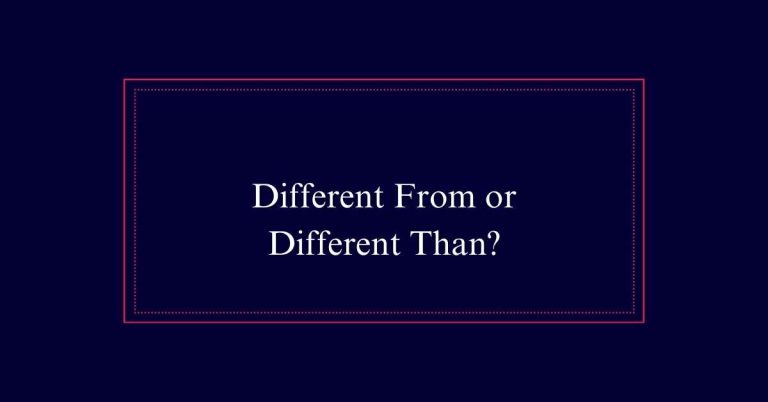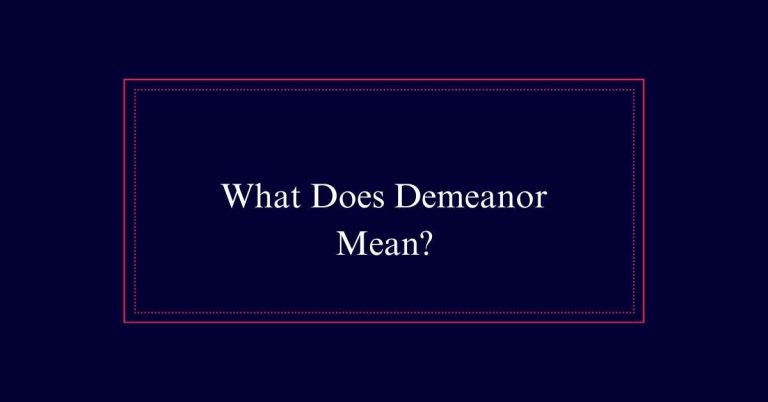Crumby or Crummy?
‘Crumby’ refers to being full of crumbs, typically used in food contexts, such as describing a tablecloth sprinkled with breadcrumbs. In contrast, ‘crummy’ denotes poor quality and can describe something that is worthless, inadequate, or shabby, such as a run-down hotel room. American English maintains a clearer distinction between the two, while British English often uses them interchangeably, relying on context for clarity.
Definitions
In the domain of language, ‘crumby’ and ‘crummy’ possess distinct definitions. ‘Crumby’ means full of crumbs, often referring to particles or fragments. It is commonly used in contexts involving food, such as describing bread or fried fish.
On the other hand, ‘crummy’ means lousy and can describe something worthless, cheap, inadequate, dirty, or run-down. While American English distinguishes clearly between these terms, British English may use ‘crumby’ and ‘crummy’ interchangeably to mean either full of particles or lousy.
Understanding these definitions is essential for effective communication, ensuring that the intended meaning is clear to the audience based on their regional language norms.
Usage in Literature
Literature often reveals the nuanced usage of ‘crumby’ and ‘crummy’ through varied contexts and settings. In classic American novels, ‘crummy’ often denotes poor quality or substandard conditions, while ‘crumby’ describes something covered in crumbs. British literature, however, uses both terms more interchangeably to imply either lousiness or the presence of crumbs. Here is a comparison table for clarity:
| Term | American Usage | British Usage |
|---|---|---|
| Crumby | Covered in crumbs | Lousy or covered in crumbs |
| Crummy | Lousy or substandard | Lousy or covered in crumbs |
| Example | “Crumby bread” | “Crummy day” or “Crumby table” |
| Context | Describing food texture | Describing mood or cleanliness |
| Setting | Culinary descriptions | General descriptions |
Such differences highlight the importance of context in literature.
American English Usage
American English distinguishes clearly between ‘crumby’ and ‘crummy’ in both spelling and meaning.
‘Crumby’ specifically refers to something full of crumbs, such as bread or pastries. For example, ‘The table was crumby after breakfast.’
On the other hand, ‘crummy’ is used to describe something of poor quality or unpleasant. For instance, ‘The hotel room was crummy and uncomfortable.’
This distinction helps avoid confusion in written and spoken communication. While the pronunciation of these words is identical, their meanings are contextually distinct.

Using the correct term guarantees clarity. In American English, it is crucial to use ‘crumby’ for crumbs and ‘crummy’ for anything substandard or unsatisfactory.
British English Context
British English often treats ‘crumby’ and ‘crummy’ as interchangeable terms. Both words can describe something lousy, dirty, or of poor quality. Additionally, ‘crumby’ may refer to being full of crumbs or particles.
This flexibility in usage can sometimes cause confusion, especially for those familiar with the more distinct American meanings. In British English, the context usually clarifies the intended meaning, whether referring to the state of being covered in crumbs or describing something substandard.
This duality is less rigid compared to American English, where ‘crumby’ and ‘crummy’ have more specific, separate definitions. The British usage relies on the reader’s ability to infer meaning from context.
Pronunciation
Understanding how ‘crumby’ and ‘crummy’ are pronounced can further clarify their usage in different contexts. Both terms are pronounced the same way: /ˈkrʌmi/. This phonetic similarity means that the distinction between them lies solely in their spelling and contextual application, rather than in their pronunciation.
In American English, ‘crumby’ describes something full of crumbs, while ‘crummy’ refers to something of poor quality. Despite this clear distinction in meaning, the pronunciation remains identical.
British English, however, often uses ‘crumby’ and ‘crummy’ interchangeably, allowing for a broader interpretation. Understanding this uniform pronunciation helps in correctly applying each term based on context and intended meaning.
Spelling Differences
Spelling differences between ‘crumby’ and ‘crummy’ frequently lead to confusion based on regional usage and context.
In American English, ‘crumby’ refers to something full of crumbs, while ‘crummy’ means something lousy or of poor quality.
In contrast, British English often uses both spellings interchangeably to describe something either full of particles or of low quality. This dual usage in British English can create ambiguity.
It is important to take into account the regional preferences when choosing the spelling. For American readers, using ‘crumby’ for crumbs and ‘crummy’ for lousy helps to ensure clarity.
British readers, however, may understand either spelling in both contexts. Therefore, knowing your audience is essential to avoid miscommunication.
Contextual Examples
Examining specific examples can illuminate the nuanced differences between ‘crumby’ and ‘crummy’ in various contexts. Here are four examples to illustrate these differences:
- Dining Table: A ‘crumby’ tablecloth is covered in breadcrumbs after a meal.
- Hotel Room: A ‘crummy’ hotel room might have worn-out furniture and dirty carpets.
- Fish Fry: Describing fried fish, an American might call it ‘crumby’ due to its breadcrumb coating.
- Mood: Someone in a ‘crummy’ mood feels irritable or unhappy.
These examples show how context determines the appropriate term. ‘Crumby’ relates to crumbs, while ‘crummy’ denotes poor quality or a negative mood. Understanding these distinctions promotes precise communication.
Recommendations
To guarantee clarity in your writing, choose ‘crumby’ for contexts involving crumbs and ‘crummy’ for situations describing poor quality or a negative mood.
In American English, this distinction aids readers in understanding your message. Use ‘crumby’ when referring to particles, especially food crumbs, to avoid confusion.
When describing something as subpar, inadequate, or in a bad mood, use ‘crummy.’
For British English readers, remember that ‘crumby’ and ‘crummy’ can be interchangeable. However, to maintain consistency, stick to the American usage rules if writing for a broader audience.
Always consider your audience’s location and the context when selecting between these two words. This approach ensures your writing remains clear and precise.
Frequently Asked Questions
Are There Idiomatic Expressions Using ‘Crumby’ or ‘Crummy’?
There are few idiomatic expressions directly using “crumby” or “crummy.” However, “crummy” appears in phrases like “a crummy deal” to indicate something unfair or substandard. “Crumby” is rarely used idiomatically.
Can ‘Crumby’ or ‘Crummy’ Be Used in Formal Writing?
‘Crumby’ and ‘crummy’ are typically informal. In formal writing, their use is limited and context-dependent. For clarity and professionalism, consider alternative words like ‘fragmented’ for ‘crumby’ and ‘substandard’ for ‘crummy’.
Are There Other Synonyms for ‘Crumby’ and ‘Crummy’?
Yes, there are other synonyms for ‘crumby’ and ‘crummy’. Alternatives include ‘shoddy’, ‘poor’, ‘inferior’, ‘substandard’, ‘squalid’, ‘worthless’, ‘mediocre’, ‘lousy’, and ‘unsatisfactory’. Choose the synonym that best fits the context.
How Common Are These Terms in Modern Usage?
These terms are less common in modern usage. “Crummy” is occasionally used to describe something of poor quality. “Crumby” is rarely used, except in specific contexts like describing food with crumbs. Both terms are more prevalent in older literature.






